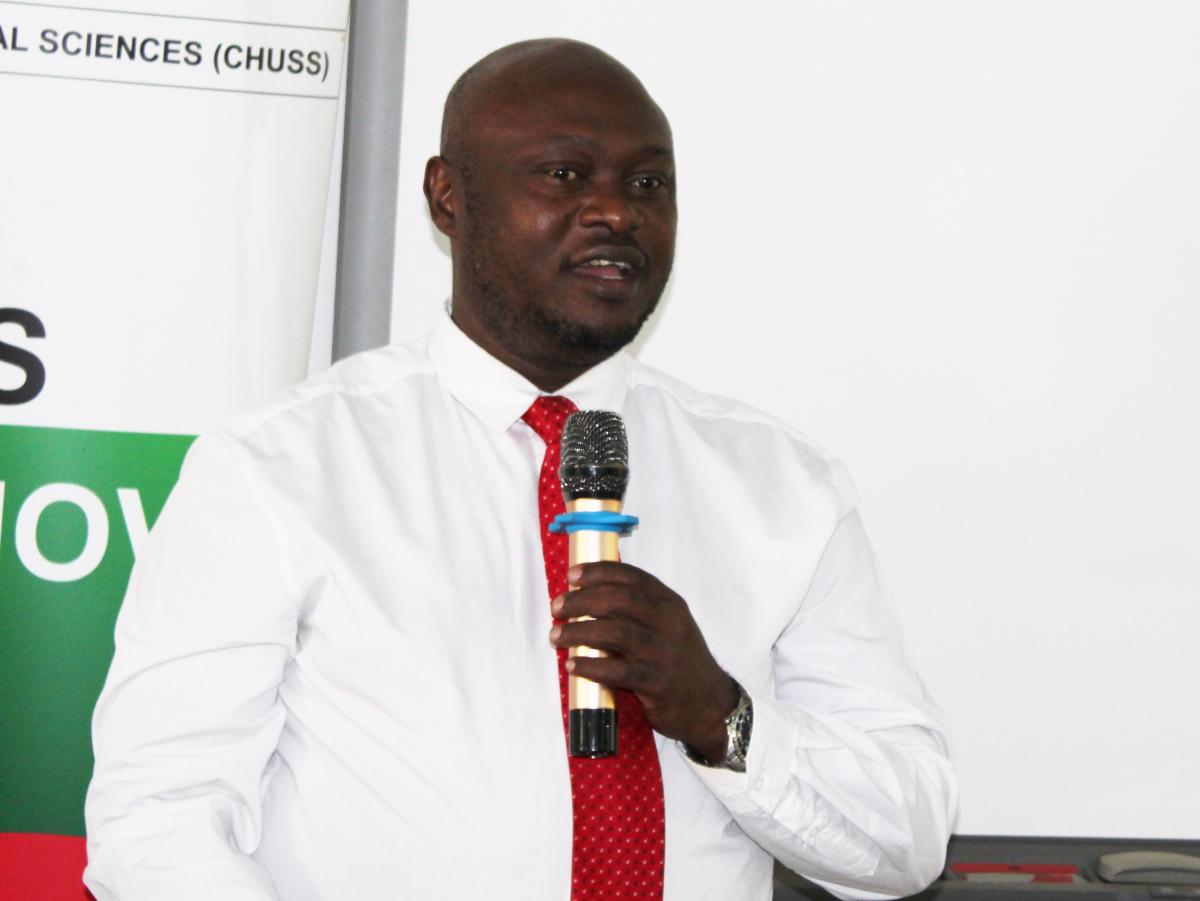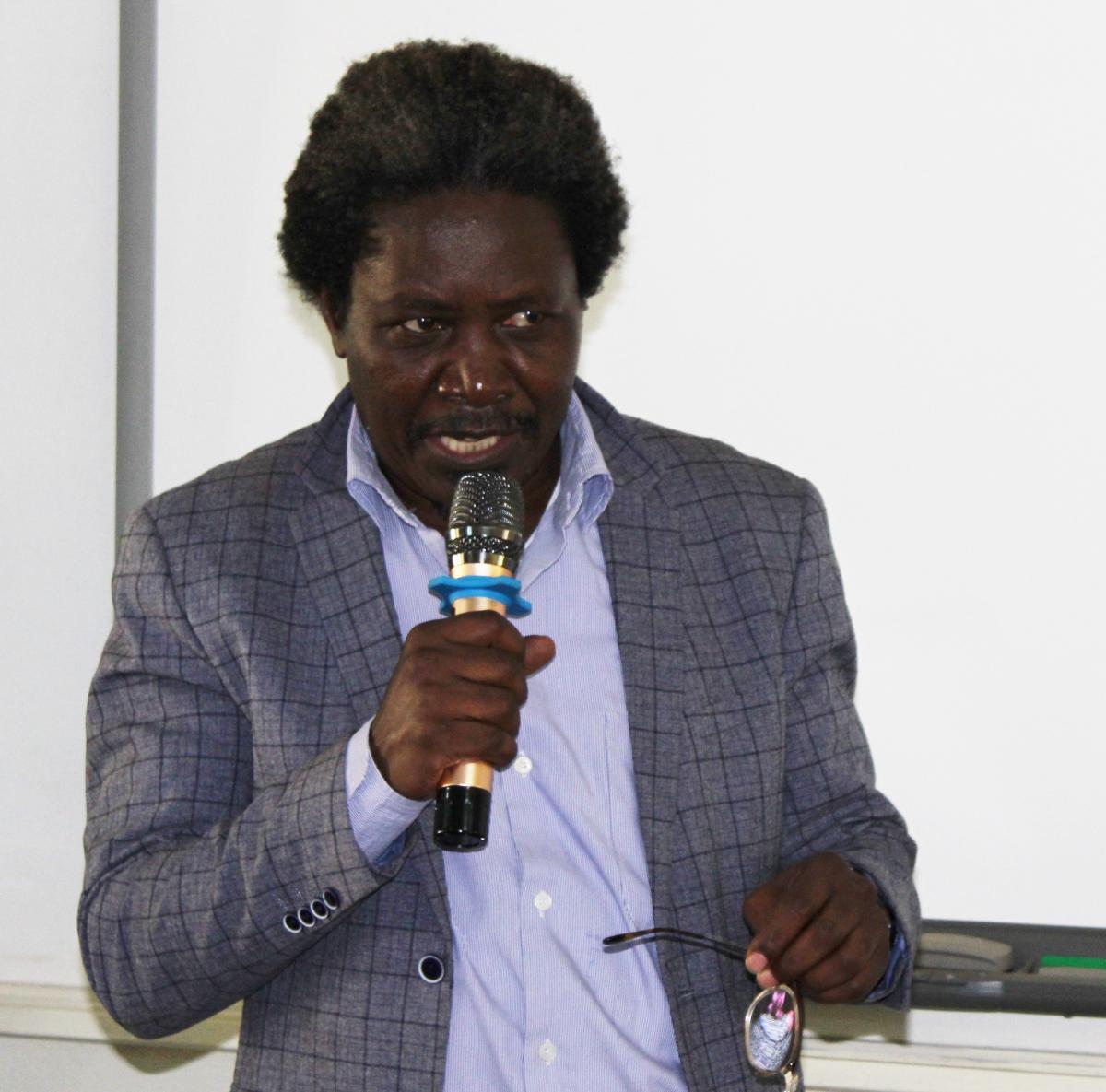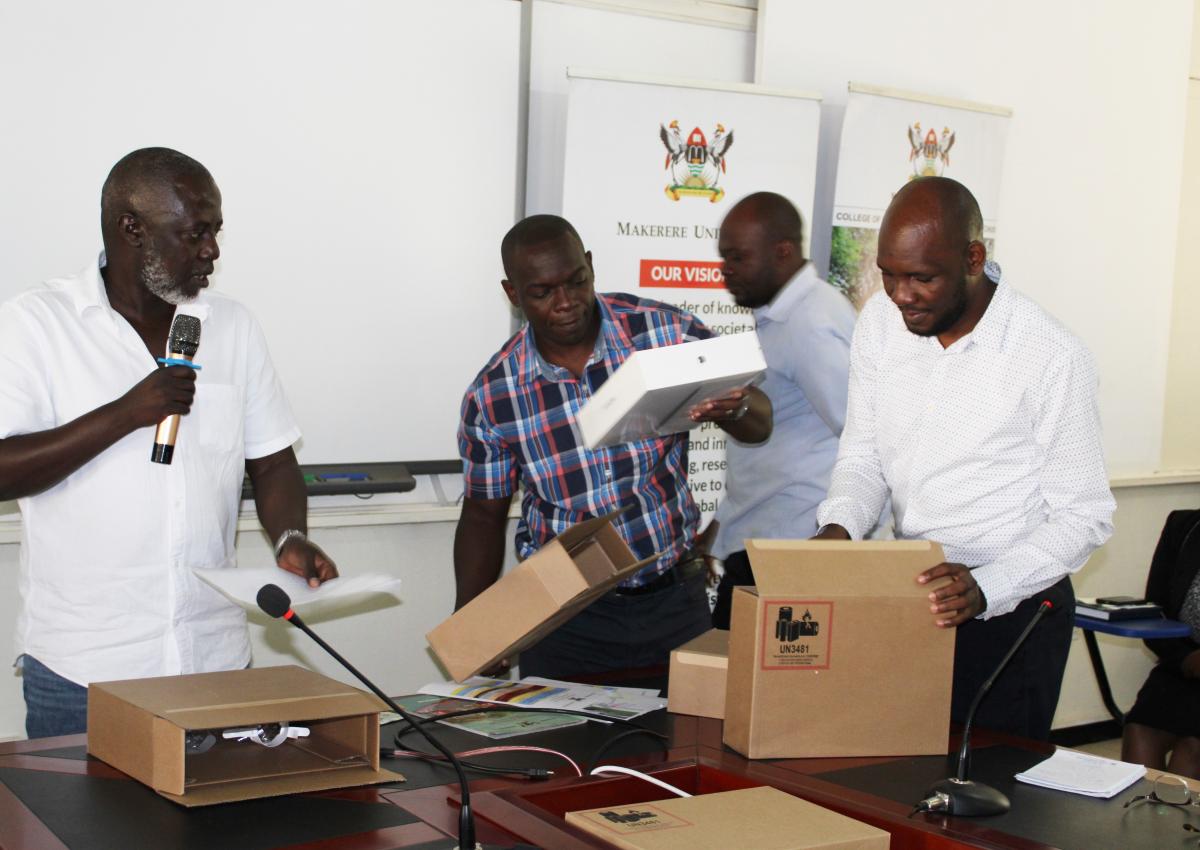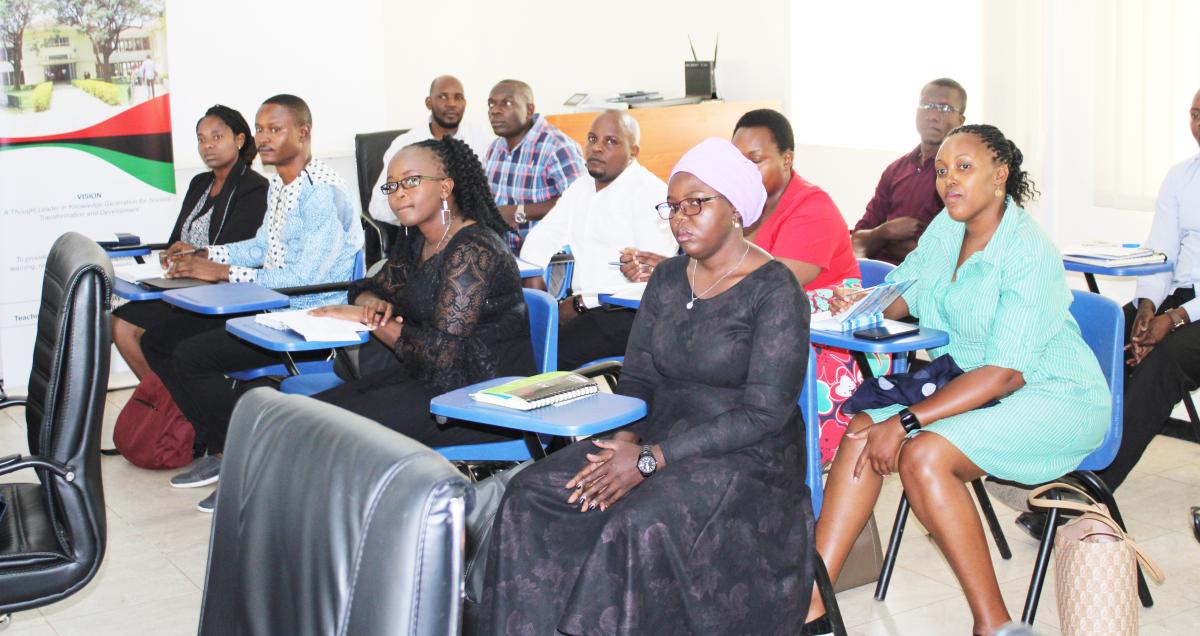
The College of Humanities and Social Sciences (CHUSS) on 30th January 2023 officially welcomed the Cohort 2022 of Gerda Henkel funded PhD fellows in a ceremony that was presided over by the Principal represented by her Deputy Assoc. Prof. Eric Awich Ochen.
11 fellows in this Cohort 2022 were facilitated with new Mac Book Air laptops to help the in their studies in a ceremony attended by college leardership including Principals,Deans, Heads of Departments, project and programme coordinators, administrative and technical staff.In 2021, the college received 10 PhD fellows, another 10 in 2020 and 14 PhD fellows 2019 funded by Gerda Henkel Siftung Foundation.

In his welcome remarks, Dr. Eric Awich congratulated the fellows upon admission to Makerere University saying, they were fortunate to secure the scholarship.
“Now it is up to you to convert the confidence of the selection committee in you and reward them by your hard work. All our students awarded under the Gerda Henkel scholarship have done very well and most of them finish on time. In the next 73rd Graduation ceremony, 8 out of the 23 PhD granduands are funded by Gerda Henkel.
That tells you the productivity of the programme, it also gives the encouragement that you are going to have all the support you need as long as you want to study and attain your objective. You can lead a horse to drink water but you cannot force the horse to drink water”, Dr. Awich advised.
Dr. Awich challenged Ugandan students not to be scattered doing many things but focus and take their PhD programme serious to complete in time and also to contribute part of their time to support the departments.
Awich gave an overview of CHUSS as an important and one of the biggest colleges in the university constituted by five schools, instititutes and centres with a student population of eight thousand among other features.
He reported that the college is ranked high in the production of the highest number of PhDs with 23 candidates to be presented in the upcoming 73rd graduation. In 2022, the college presented 25 PhDs while in 2021 CHUSS presented 22 PhD graduands .
In terms of support, Dr. Awich reiterated that the college has what is needed, from supervisors and all physical and online resources for the fellows to succeed.
Introducing students to the PhD candidature in CHUSS, the Dean, School of Liberal and Performing Arts Associate Prof. Patrick Mangeni reminded students that they are funded and expected to graduate within three years.

“I welcome you to the PhD programme. We are starting in January 2023 and you are graduating in February 2026. Be clear about that, that you have three years and in three years, you should be done with your work and anything to do with extension after three years, is something not welcome”, The Dean warned.
Prof. Mangeni informed students that in addition to having the supervisors, they will have doctoral committees to support the supervision. Between this orientation and one year, Mangeni said students will be expected to be developing their proposals as well as attending courses. He implored them to utilise online resources such as getting a link from the graduate school that guides on expectations from a PhD candidate.
“You will need, as graduate students to utilise online resources under the graduate school. There is also a post graduate handbook that you can get online. Please acquaint yourself with that. It will give you all the information about supervision, procedures, policies and all stages from entry to exit”. Mangeni advised.
Other pieces of advice were on changes on topics that may move away from the mother departments, the need to have at least two publications before graduation, utilisation of support spaces such as seminars, conferences, libraries and submission of progress reports.

The project coordinator, Dr. Edgar Nabutanyi reported that 11 fellows out of the 162 applicants succeeded for the scholarship, imploring students to be proud of themselves for having succeeded among the many who showed interest. He however cautioned that this success comes with responsibility.
“That comes with a big responsibility to the effect that when you think of yourself and your position in this cohort, know that you will take one position for 161 potentially good applicants and therefore, it is imperative on you to do what you have to do but also to reward the college which saw potential in you and gave you this opportunity”, Dr. Nabutanyi emphasised.
Dr. Nabutanyi underscored that being a full time PhD training, the only job for the fellows was to read books, write proposals, articles and dissertations for the next three years. Nabutanyi implored the fellows to study the almanac, follow it and convert it with the help of the supervisors into their own working document.
Nabutanyi cautioned students against describing themselves as Gerda Henkel students but rather, first of all, as students of Makerere University that offered them the provisional admission and then the department where the intellectual supervision is to be undertaken.
“Therefore, familiarise yourself with your department, its traditions, work ethics and its research interests and resources. Don’t isolate yourself but locate yourself in the department and be a visible member of the department”, He urged.
He alerted the fellows that PhD training is a serious academic activity, and an initiation into the world of scholarship that sometimes tends to be lonely with high impact draining on physical and intellectual resources. He advised them to utilise the cohort as a support system in this hard task.

Gerda Henkel Siftung Foundation was established in June 1976 by Lisa Maskell in memory of her mother Gerda Henkel as an incorporated foundation under civil law, headquartered in Düsseldorf. The Foundation provides financial support for the historical humanities and particularly, research projects that explore current issues in a larger historical context or consciously focus on topics of relevance to the present or the future.
